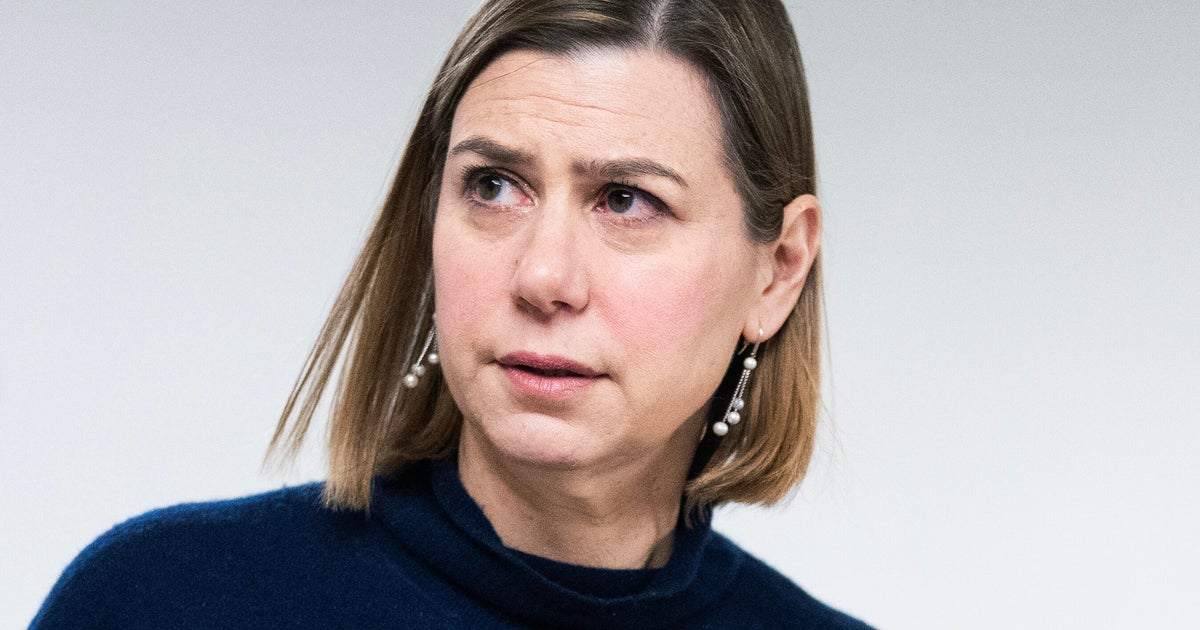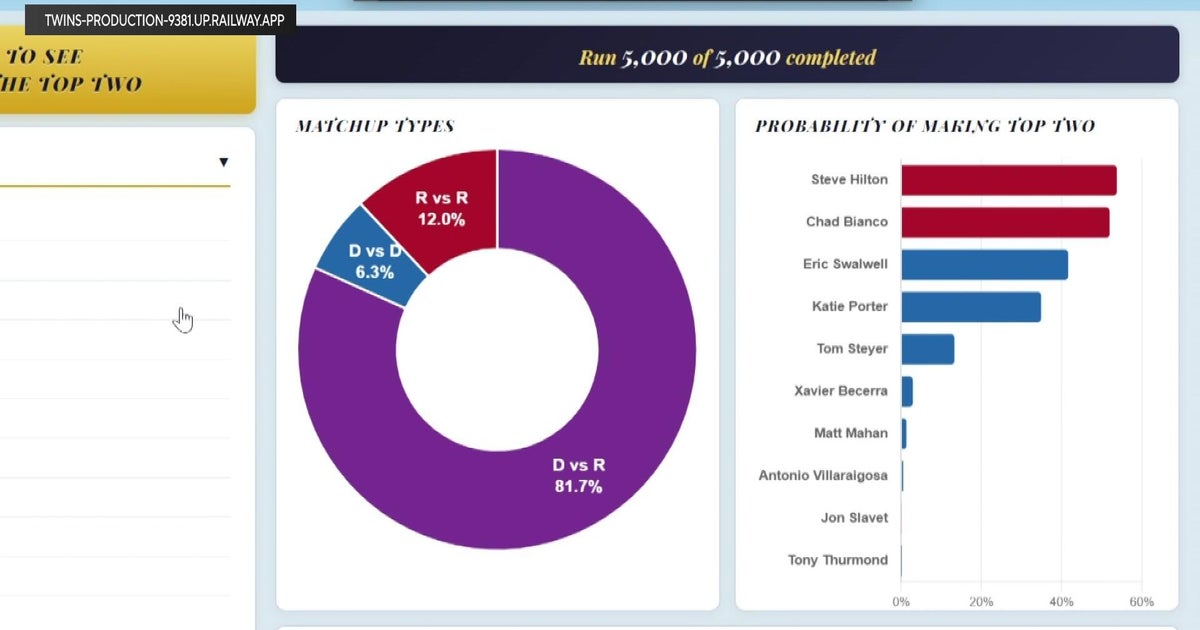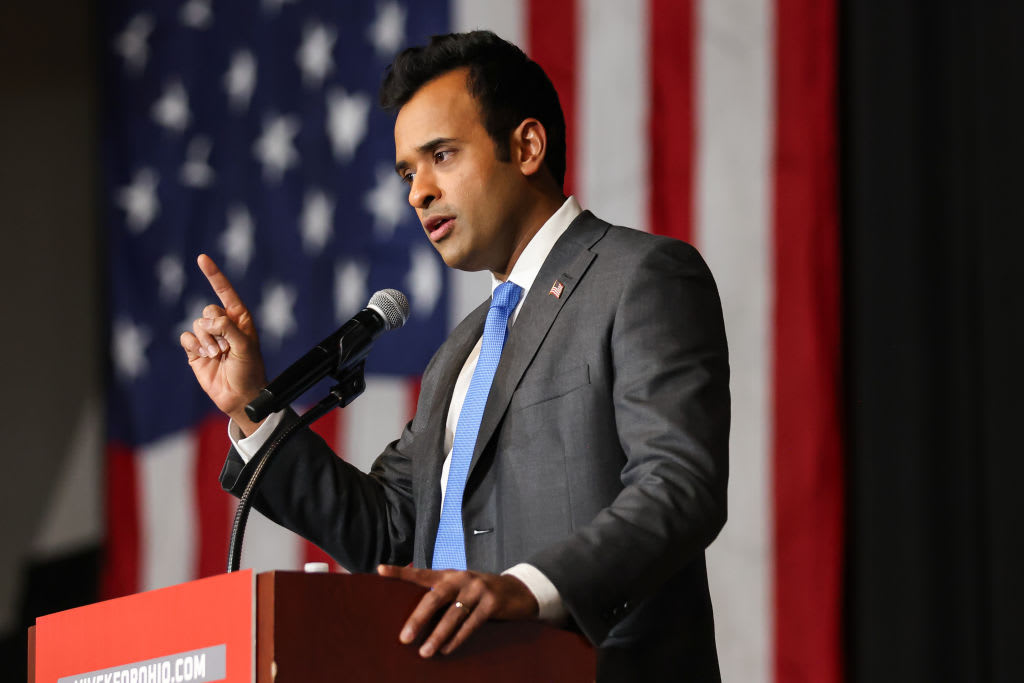Transcript: Gov. Mike DeWine on "Face the Nation," April 25, 2021
The following is a transcript of an interview with Ohio Gov. Mike DeWine, that aired Sunday, April 25, 2021, on "Face the Nation.
JOHN DICKERSON: We go now to Governor Mike DeWine of Ohio. Good morning, Governor.
GOVERNOR MIKE DEWINE: Morning, JOHN.
JOHN DICKERSON: Governor, you said after the verdict this week that, "George Floyd's death laid bare some of our deepest divisions in our country. There is a lot for us to learn from this great tragedy." What is there for us to learn?
GOV. DEWINE: JOHN, I think there's a clear pathway in regard to police reform. I think there are things that we all can come together on, Democrat or Republican, liberal or conservative. We have a bill in front of the state legislature that we presented, for example, that calls for a lot more police training, more uniform police training. We have 900 and some police departments in Ohio. Many states have a lot of small departments. Many times because of resources, they don't get the training that they need. Body cameras. The tragedy of a 16-year-old child who was killed in Columbus. Mayor Ginther made the absolute correct decision. Within six hours they had that out to the news media. But not every police department in this country has body cameras because of the- of the cost. So we presented a bill to the legislature that would provide funding for body cameras for police departments. Another pathway clearly is there, and that is to treat police as professionals. What do I mean by that? Well, you know, we have the- the state licensing boards for doctors, for lawyers, for nurses. We should do the same thing for police so that when there is a complaint against a police officer, a state licensing board can deal with that. These are common sense things that we can do, should not be controversial. We can all get behind.
JOHN DICKERSON: I want to get to some of those reforms in a minute. You mentioned the Ma'Khia Bryant case. You- you support the release of the video. When you were attorney general, you called for an outside prosecutor in these kinds of instances. Should there be one in this case?
GOV. DEWINE: Well, they already have an outside investigator, BCI, and I think in most cases this is- this is certainly called for--
JOHN DICKERSON: Should it be automatic in these cases, Governor?
GOV. DEWINE: I'm sorry?
JOHN DICKERSON: Should it be automatic in these cases, Governor?
GOV. DEWINE: Yeah, I think it should be automatic, automatic outside, someone come in to do the investigation. You also have the prosecution, you know, the prosecution itself. And it's not that the local prosecutor can't do it or the local police can't investigate themselves, particularly with the police investigating themselves. You know, there is the appearance. There's always the appearance that, you know, that was not a fair investigation. So I think getting rid of that feeling, getting rid of that appearance, making sure it's an outside agency that is doing the investigation. BCI in Ohio does a great, great job. They're the ones that are involved. It's a state agency. They're the ones that the mayor has asked to come in and do the investigation in Columbus.
JOHN DICKERSON: You've talked about training. And I want to talk about the Ma'Khia Bryant case. There's been a lot of people looking at it because the video is out there, a lot of people making judgments. What a lot of people in the Black community see is they see a situation in which white assailants, young white men who've sometimes have just come from committing mayhem, are taken into custody. But when it's a young Black man or woman, there- they are- there's a shooting, there's a use of force, and they see a wide disparity there. In terms of the discretion used by officers, do you understand that feeling?
GOV. DEWINE: Well, I certainly understand the feeling. I also understand the feeling of the police officer. I've not been a police officer, but I was a county prosecuting attorney. Look, they've got a tough job. You know, they have to make split second decisions. And in this particular case, for example, you know, you're watching the same thing I'm watching, you know the same thing I'm- I'm seeing. But that's what the police officer saw. So that's why one reason, frankly, to have the video cameras and get that out to the public so that everybody, you know can take a look at that.
JOHN DICKERSON: But--
GOV. DEWINE: But yes, I understand how they feel. It's one of the reasons why, you know, teaching them implicit bias, you know, more police training, how you defuse a situation, how you deal with someone, for example, who has a mental health problem, how you deal with someone who is autistic, all of these things, you know, we know how to do now.
JOHN DICKERSON: So--
GOV. DEWINE: It's just getting that training out to every police- every police officer in the country.
JOHN DICKERSON: Let me ask you about that question of implicit bias, because what you see in the figures is that you're twice as likely, if you're Black, to get shot in one of these instances. And then also in Columbus, there was a study that showed even though Black residents are 28% of the city, they're involved in half of the use of force cases. So it's not just a feeling. The numbers back it up. And I wonder if you can be very specific in this training about basically the implicit views of race that get embedded one way or another into police that cause these kinds of outcomes?
GOV. DEWINE: Sure. This is- this is state of the art training today, JOHN. This is what professionals want, and, you know, I've never met a police officer yet who didn't want more training. This is part of that- that kind of training. Absolutely. This is something that, you know, I did when I was attorney general. It's something that we want to spread out with more police training, continuous police training every single year, even the smallest department. That's what we should have.
JOHN DICKERSON: Let me ask you about qualified immunity, a piece of jargon we hear about a lot. Some people say it shields police officers who- who do wrongdoing. Others say it allows them to make a good faith effort in these split-second moments. It's being taken care of in states, New Mexico, Colorado. Will Ohio do anything to change qualified immunity? Do you think?
GOV. DEWINE: JOHN, we have not really had a discussion about it. I'm sure we will. I'll take a look at that. But I've really not looked at that to see what impact that does have.
JOHN DICKERSON: And you don't have a view one way or the other whether it should or shouldn't?
GOV. DEWINE: No.
JOHN DICKERSON: Let me--
GOV. DEWINE: I really don't.
JOHN DICKERSON: Let me ask you a quick COVID-19 question. There's a lot of vaccine hesitancy out there. A.), how worried are you about that? And B.), as a Republican, one of the things we found in our polling is that 46%, excuse me, 49% of Republicans either aren't going to get it at all or are very hesitant. So how worried are you and what would you say to fellow Republicans?
GOV. DEWINE: Well, I'm worried, JOHN. We've seen our vaccination rate go down about half of what it was three weeks ago, so that's a concern. But we've vaccinated about 40% of, at least for the first shot, 40% of our total population. We just need to continue to- to move forward. If you look at those 65 and over, we're over 23, 24%. So we're doing pretty well. But we have to continue to go forward. The game is not over yet. So I'm- I'm concerned about it.
JOHN DICKERSON: OK.
GOV. DEWINE: You know, one of the things that we're doing is now we're reaching out to businesses and providing for vaccinations directly in businesses.
JOHN DICKERSON: All right.
GOV. DEWINE: We're doing the same thing in our colleges.
JOHN DICKERSON: All right, governor we're going--
GOV. DEWINE: We're doing the same thing in our high school. We've got to be more aggressive.
JOHN DICKERSON: All right, Governor.
GOV. DEWINE: And we're doing it.
JOHN DICKERSON: Thank you. Thank you so much. Sorry, I've got to be aggressive and move on. Thank you, Governor. We appreciate it.



